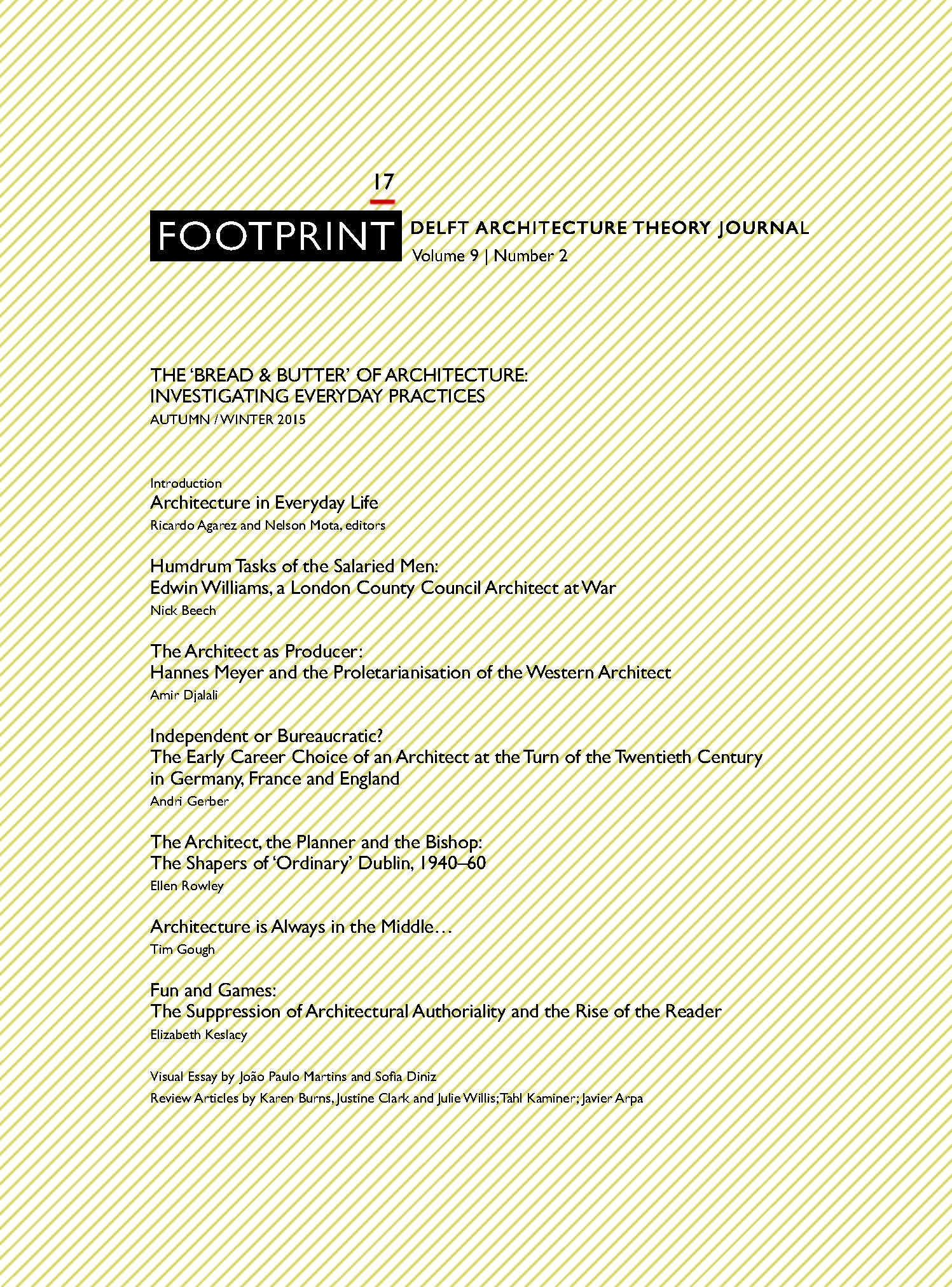Layers of Invisibility in Portuguese State Furniture Design, 1940-1974
DOI:
https://doi.org/10.7480/footprint.9.2.991Abstract
If the buildings designed in Portugal by and for the state during the long rule of dictatorship are, still today, a challenging, often uncomfortable subject of enquiry – concealed by various layers of interpretation that render them virtually invisible despite their ubiquity –, the furniture that equipped those buildings is even more so. These were objects designed for everyday use, in which technological possibilities and material sturdiness were fundamental concerns, and their designers were frequently little-known architects working within the civil service sphere; better-known names, in turn, are seldom credited with having created the pieces that furnished their own buildings. Yet state-commissioned furniture design can also speak of other aspects of this apparently ordinary, largely invisible side of many architects’ everyday work in government offices. In this brief visual essay, snapshots of a long-term research project recently concluded at the School of Architecture, University of Lisbon prompt us to identify designers and commissioning agencies, locate them within their context(s) of production and discuss significant episodes where diverse aesthetical and ideological stances are followed, each with its own rhetoric: the rift between a generally conservative tutelage and some officials’ drive to keep up with international developments, for example, can be read in these inconspicuous objects and practices of the everyday. Our research, its outputs and initiatives (publications, exhibitions) have illuminated a facet of Portuguese design history that had previously been neglected, and brought in fresh arguments in support of the importance of quotidian artefacts for our understanding of built environment production.
Downloads
Published
Issue
Section
License
- Authors retain copyright and grant the journal right of first publication with the work simultaneously licensed under a Creative Commons Attribution License that allows others to share the work with an acknowledgement of the work's authorship and initial publication in this journal.
- Authors are able to enter into separate, additional contractual arrangements for the non-exclusive distribution of the journal's published version of the work (e.g., post it to an institutional repository or publish it in a book), with an acknowledgement of its initial publication in this journal.




